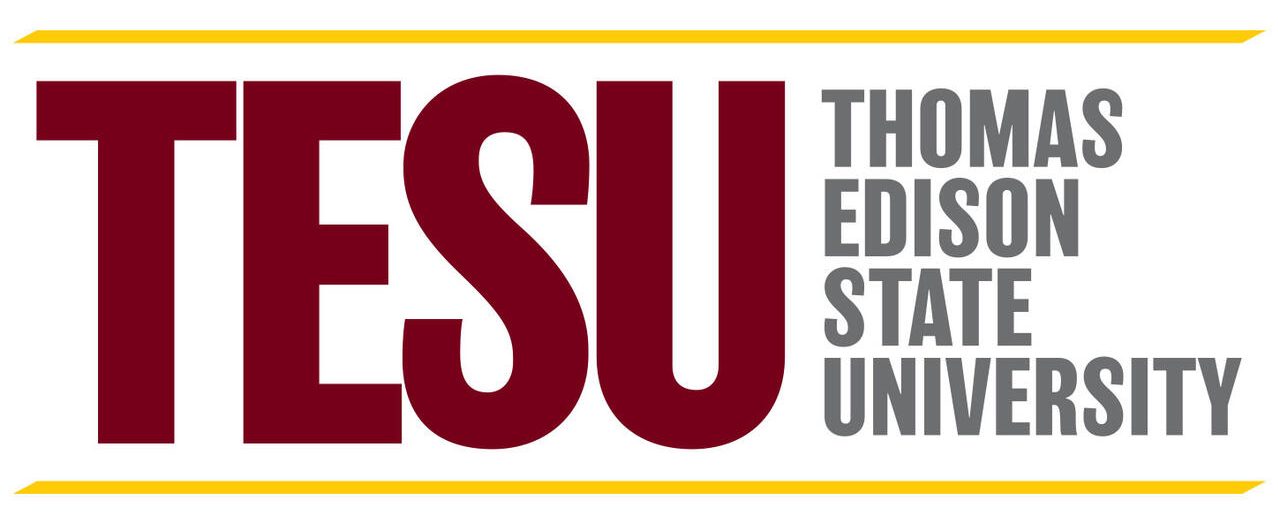1 Design Principles
Consistent with the strategic vision plan of Thomas Edison State University, the Center for Learning and Technology adheres to the following principles:
1 – A Focus on Adult Learners
We are dedicated to serving the needs of adult learners. We value the experience that adults bring as a resource to learning and acknowledge that adult learners expect contextualization and relevance. Our asynchronous platform meets learners at their convenience, at any time, and in any place. Our focus on facilitation rather than instruction meets learners at the edge of their learning, promoting interactivity and feedback that is both focused and timely.
2 – Outcomes-First Course Design
We keep institutional and programmatic outcomes in the forefront as we envision, design, and execute course development. We utilize curriculum and assessment mapping tools, including Aqua (our outcomes collection platform) in our design process and focus on the development and assessment of properly aligned, appropriate, and measurable course objectives.
3 – Adherence to External Principles
We seek a solid theoretical foundation for our practices and check our procedures against external standards. These include design standards such as the ADDIE framework and the Quality Matters Continuous Improvement Model, the academic standards prescribed by our accrediting body, and tenets of adult learning theory.
4 – Coordination with University-Wide Goals and Initiatives
We endeavor to respond to University initiatives and needs through the development of specialty courses, including capstones, practicums, and cornerstone courses. We coordinate within the University’s social media platforms toward the aim of enhancing the transparency of our process and goals.
5 – Maintaining the Value Proposition for Learners
We are committed to identifying new technologies and processes to drive down institutional overhead, keeping course costs and materials fees reasonable for students. We empower staff to seek alternative solutions and to retire aged services and technologies.
6 – Use of a Collaborative and Iterative Development Process
We foster a highly collaborative and iterative development process using the cloud-based Google platform. Subject matter experts, representatives of the various schools, instructional designers and technologists, and assessment development specialists may view, comment on, and contribute to development of live documents. Course components and supporting materials are always viewable during development and therefore undergo continuous improvement. The CLT is dedicated to the encouragement of meaningful collaboration, to a culture of experimentation within a framework of rigor and project accountability.
7 – Promotion of Learner Engagement and Active Learning
We strive to engage all participants through multiple opportunities for learning. Courses involve both interactive and individual learning opportunities; course materials may include textbook and article readings, audio or video clips, labs, and simulations. Formative assessments placed throughout the course optimize and guide learning. Our program also offers a mix of homegrown and partnered engagement platforms to enhance the student experience.
8 – Universal Design
We diligently work to ensure that our course presentation, assessment, and engagement are accessible to our diverse student population. We seek to meet our students at the edge of their learning by offering a broad range of course offerings and delivery modalities. We ground our practices within contemporary standards in the industry, both in terms of the technologies we utilize and the best practices that we adopt in instructional design and assessment.
9 – Intelligent Technology
We focus on intelligent technology and UX (user experience) design, seeking innovative course delivery mechanisms that leverage conventional consumer technologies toward the goals of both accessibility and portability. We strive to fully integrate our systems for a streamlined user experience.
10 – Transparent Assessment Standards
We maintain standards for valid, fair, and reliable assessment. Grading rubrics are an important means for assessment and are based on specific criteria and measurable performance descriptors. Rubrics are provided to learners and facilitators at the semester outset and embedded in the course assessments. Rubrics are also a means for the University to assess and collect data on learner achievement of institutional and programmatic outcomes. Our test development processes adhere to external design principles such as Evidence-Centered Design (ECD) and the ETS Standards for Quality and Fairness. In addition, resources such as blog articles, our Testing Resources page, and exam study guides illuminate our process and provide specific guidance to students.
11 – Consistency and Flexibility
We seek to improve the learner experience through a user interface that is both consistent and flexible. Process features such as our Universal Style Guide and course templates ensure consistency for all learners. At the same time, our 12-month semester program, 8-week and 12-week course lengths, variety of delivery modes, and open facilitation model allow our program to be flexible enough to respond to diverse learner needs.
12 – Course Sustainability and Continuous Improvement
We are dedicated to providing a wide range of viable course offerings that serve the needs of our students and feature accurate and up-to-date information. A dedicated set of internal self-assessment tools and external data sources (including input from learners, mentors, and representatives of the schools) assures currency of material and continuous course improvement. Analysis of statistical data guides continuous improvement of our assessments.
